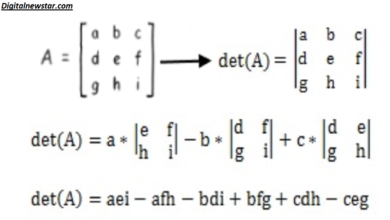Challenging Labels: A Critical Examination of ‘Utanmaz Türklere’ and Its Social Context
utanmaz türklere

The term “utanmaz türklere“ translates to “shameless Turks” and has been a point of contention and discussion in various circles. This phrase is often employed to describe individuals or groups perceived as lacking in moral integrity or social etiquette. In this article, we will delve into the various facets of this term, exploring its implications, historical context, and the broader social issues it reflects. Our goal is to approach this subject with sensitivity and depth, examining the societal dynamics that contribute to the use of such labels.
Understanding “Utanmaz Türklere”
The term “utanmaz türklere” is typically used in a derogatory context to criticize behaviours deemed unacceptable by specific societal standards. To fully grasp the significance of this phrase, it is essential to understand the cultural and social nuances that shape its usage. This term often surfaces in discussions about morality, behaviour, and the perceived erosion of traditional values.
Historical and Cultural Context
Historical Influences
A complex interplay of cultural, political, and social transformations has marked Turkey’s history. From the Ottoman Empire’s diverse and multi-ethnic society to the modern Republic of Turkey’s efforts to reconcile tradition with modernization, historical factors have profoundly influenced societal norms and values. These historical shifts have shaped contemporary views on behaviour and morality, contributing to the emergence of terms like “utanmaz türklere.”
Cultural Shifts
In recent decades, Turkey has undergone rapid modernization and globalization, leading to significant cultural shifts. New influences, including Western cultural norms and digital media, have challenged traditional values. These changes have sometimes resulted in generational divides, with younger generations adopting different values and behaviours compared to their predecessors. The term “utanmaz türklere” often arises in the context of these cultural shifts, reflecting concerns about the erosion of traditional norms.
Social Challenges Reflected by “Utanmaz Türklere”
The use of the term “utanmaz türklere” can be indicative of broader social challenges and tensions within Turkish society. Several factors contribute to the perception of certain behaviours as “shameless” or unacceptable:
Political Polarization
Turkey’s political landscape has been characterized by significant polarization, with deep divisions over issues such as governance, national identity, and social values. This polarization can lead to the labelling of individuals or groups as “utanmaz türklere” based on their political or social views. Such labelling can further entrench divisions and hinder constructive dialogue.
Media Influence
The media plays a crucial role in shaping public perception. Sensationalist reporting and biased portrayals can amplify negative stereotypes and contribute to the use of terms like “utanmaz türklere.” Media coverage that focuses on controversial or extreme behaviours can create a distorted image of social norms and exacerbate existing tensions.
Economic and Social Inequality
Economic disparities and social inequality can also influence perceptions of behaviour. In times of financial hardship, individuals may engage in behaviours that are perceived as unconventional or unacceptable. The term “utanmaz türklere” can sometimes be used to criticize those who are struggling or marginalized, reflecting broader issues of inequality and social frustration.
Generational and Cultural Gaps
The generational divide in Turkey is a significant factor in the use of terms like “utanmaz türklere.” Younger generations, exposed to global influences and modern values, may exhibit behaviours that older generations find troubling or inappropriate. This generational gap can lead to the use of derogatory terms to describe behaviours that are simply different from traditional norms.
Constructive Dialogue and Addressing Underlying Issues
Rather than resorting to negative labelling, it is more productive to address the underlying issues that contribute to the perception of certain behaviours. Constructive dialogue and efforts to understand different perspectives can help bridge gaps and promote social cohesion.
Promoting Education and Awareness
Education plays a vital role in shaping attitudes and behaviours. By promoting awareness of cultural diversity and encouraging critical thinking, individuals can develop a more nuanced understanding of social issues. Educational initiatives that address issues of morality, behaviour, and cultural change can help reduce the use of derogatory terms like “utanmaz türklere.”
Encouraging Empathy and Respect
Building empathy and respect for differing viewpoints is essential for reducing polarization and fostering positive interactions. Encouraging people to listen to and engage with others’ experiences can lead to more meaningful discussions and a greater appreciation of diverse perspectives.
Addressing Socioeconomic Inequality
Tackling economic disparities can alleviate some of the pressures that contribute to negative behaviours and perceptions. By addressing issues such as poverty, unemployment, and social exclusion, society can create a more equitable environment that reduces the need for derogatory labels like “utanmaz türklere.”
Fostering Inclusive Communities
Creating inclusive communities where diverse voices are heard and valued can help mitigate tensions and promote social cohesion. Inclusive communities encourage dialogue and collaboration, leading to more positive outcomes and reducing the prevalence of negative labelling.
The Role of Government and Institutions
Government and institutions have a significant role in shaping societal values and addressing social challenges. By implementing policies that promote social justice, economic equity, and cultural understanding, these entities can contribute to a more harmonious society.
Policy Development
Formulating policies that address social and economic issues is crucial for mitigating factors that contribute to negative behaviours and perceptions. Government policies that focus on social welfare, economic development, and cultural preservation can help reduce the use of derogatory terms like “utanmaz türklere.”
Cultural Programs
Supporting cultural programs and initiatives that celebrate diversity and promote intercultural understanding can help bridge gaps and reduce prejudices. By fostering a greater appreciation of different cultural perspectives, society can work towards overcoming negative stereotypes.
Media Regulation
Ensuring responsible media reporting and combating sensationalism is essential for preventing the spread of negative stereotypes. Media outlets should strive to provide balanced and accurate portrayals of social issues, avoiding the reinforcement of derogatory terms like “utanmaz türklere.”
Looking Ahead: Building a More Inclusive Society
As Turkey continues to evolve, it is essential to approach social challenges with a spirit of understanding and collaboration. By focusing on constructive dialogue and addressing underlying issues, society can work towards creating a more inclusive and equitable environment.
The term “utanmaz türklere” highlights the complexities of social behaviour and cultural change in Turkey. Instead of using such terms to label or stigmatize individuals, it is more productive to engage in meaningful discussions that address the root causes of social issues. Through education, empathy, and inclusive policies, Turkey can navigate its social challenges and build a more cohesive and respectful society.
In conclusion, while the term “utanmaz türklere” reflects specific societal concerns, it is crucial to approach these issues with sensitivity and a focus on constructive solutions. By fostering dialogue, promoting understanding, and addressing underlying social challenges, Turkey can work towards a more harmonious and inclusive future.
May Also Read: The Evolution of the WaPo Crossword: From Its Origins to Modern Day





